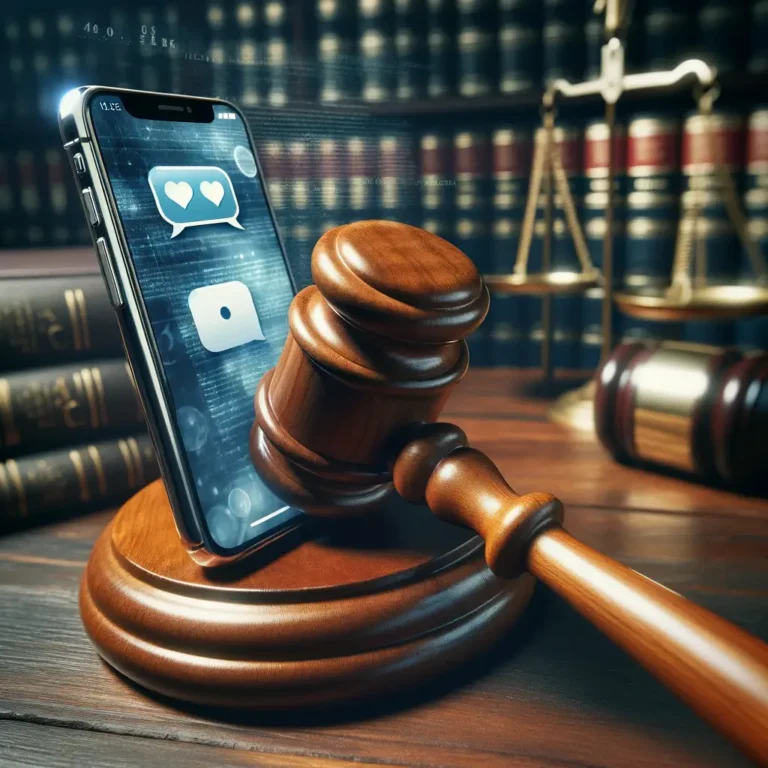Facing criminal charges can be a terrifying and disorienting ordeal. The legal system can seem complex and intimidating, leaving you unsure of your next steps. However, understanding criminal defense strategies can empower you to take control and seek the best possible outcome in your case.
Criminal Defense Strategies: What You Need to Know
Here are criminal defense strategies explained:-
Key Principles of a Strong Defense
Before delving into specific strategies, let’s establish the foundational pillars of a solid defense:
- Honesty and Open Communication: Be upfront with your attorney about the entirety of your situation. Transparency is crucial for building trust and formulating the most effective defense.
- Understanding the Charges: Familiarize yourself with the specific charges against you and their legal elements. Thoroughly understand what the prosecution needs to prove to convict you.
- Exercising Your Right to Silence: Do not speak to the police without your attorney present. Remember, anything you say can be used against you.
Common Defense Strategies Explained
Now, let’s explore some of the most common and effective criminal defense strategies:
1. Challenging the Prosecution’s Case:
- Questioning Evidence: Your attorney will scrutinize the prosecution’s evidence for any errors, inconsistencies, or chain of custody issues that could raise reasonable doubt.
- Challenging Witness Testimony: Your attorney may cross-examine witnesses, identify potential biases, or uncover inconsistencies in their statements.
- Suppression of Evidence: If evidence was obtained illegally, your attorney may argue for its exclusion from the court proceedings.
2. Presenting Affirmative Defenses:
- Alibi: Providing alibi witnesses or other forms of proof that place you elsewhere at the time of the alleged crime.
- Self-Defense: Demonstrating that your actions were justified to protect yourself or others from imminent harm.
- Lack of Intent: Arguing that you did not have the necessary criminal intent to commit the crime.
3. Negotiating Plea Bargains:
In some cases, your attorney may recommend negotiating a plea bargain with the prosecution. This involves pleading guilty to a lesser charge or cooperating with the authorities in exchange for a reduced sentence or dismissal of certain charges.
Seeking Qualified Legal Support
Facing criminal charges requires competent and experienced legal representation. When choosing a criminal defense attorney, prioritize:
- Specialization: Look for an attorney with expertise in cases similar to yours.
- Track Record: Consider the attorney’s success rate in handling similar cases.
- Communication: Ensure you feel comfortable and confident in openly communicating your concerns with your attorney.
The path through the legal system can be challenging, but understanding your rights and exploring potential defense strategies can empower you to face the situation with confidence. Remember, you are not alone – seek qualified legal counsel and navigate the legal labyrinth with clarity and strength.
Read:- How to get bail in criminal case
FAQ (FREQUENTLY ASKED QUESTIONS)
1. Q: What is criminal defense strategy?
A: Criminal defense strategy refers to the legal approach taken by defense attorneys to protect their clients facing criminal charges.
- Q: What is the role of a criminal defense attorney?
A: A criminal defense attorney advocates for the accused, investigates the case, builds a defense, and represents the client in court. - Q: Can I represent myself in a criminal case?
A: While it’s legally possible, it is not recommended. Professional legal representation significantly improves the chances of a favorable outcome. - Q: What are common criminal defense strategies?
A: Common strategies include challenging evidence, questioning police conduct, proving lack of intent, establishing an alibi, and asserting the defendant’s rights were violated. - Q: How do I choose the right criminal defense attorney?
A: Look for experience in similar cases, a good reputation, and effective communication skills. Consultations with potential attorneys can help you make an informed decision. - Q: What is the importance of a strong defense strategy?
A: A strong defense strategy is crucial for protecting the accused from unjust convictions and ensuring a fair legal process. - Q: Can a defense strategy lead to a case dismissal?
A: Yes, a well-crafted defense strategy can result in the dismissal of charges if it successfully challenges the prosecution’s case. - Q: How does the attorney gather evidence for the defense?
A: Attorneys may interview witnesses, analyze forensic evidence, review police reports, and utilize expert testimony to build a strong defense. - Q: Can mental health be used as a defense strategy?
A: Yes, mental health issues can be a valid defense, such as establishing diminished capacity or insanity, depending on jurisdiction. - Q: Is it possible to negotiate plea deals as part of a defense strategy?
A: Yes, attorneys often negotiate plea deals to secure reduced charges or penalties for their clients. - Q: How does a defense attorney challenge evidence?
A: Challenges may involve questioning the legality of evidence collection, challenging witness credibility, or disputing the reliability of scientific evidence. - Q: Can a defense strategy involve presenting an alternative suspect?
A: Yes, presenting an alternative suspect is a defense strategy aimed at creating reasonable doubt about the accused’s guilt. - Q: What is the significance of the presumption of innocence in a defense strategy?
A: The presumption of innocence places the burden of proof on the prosecution and reinforces the principle that the accused is innocent until proven guilty. - Q: Can prior convictions be used against the defendant?
A: Yes, prior convictions may be introduced as evidence in certain cases, impacting sentencing and potentially influencing the defense strategy. - Q: How long does it take to develop a defense strategy?
A: The time needed varies, but a thorough defense strategy often requires extensive investigation, legal research, and case analysis. - Q: Is self-defense a common strategy?
A: Yes, self-defense is a common strategy, asserting that the accused’s actions were justified to protect themselves or others. - Q: Can a defense strategy involve challenging the legality of the arrest?
A: Yes, if the arrest was unlawful or violated the defendant’s rights, it can be challenged as part of the defense strategy. - Q: Are there alternative resolutions besides going to trial?
A: Yes, alternative resolutions may include plea bargains, diversion programs, or other negotiated settlements. - Q: Can the defense strategy change during the course of the trial?
A: Yes, the strategy may evolve based on new evidence, witness testimonies, or developments in the case. - Q: How does the attorney prepare the defendant for trial?
A: Preparation includes explaining court procedures, discussing potential questions, and advising on courtroom etiquette. - Q: Is it possible to appeal a conviction based on an ineffective defense strategy?
A: In some cases, if the defense attorney’s performance was grossly inadequate and prejudiced the defendant’s case, an appeal may be possible. - Q: Can the defendant testify as part of the defense strategy?
A: Yes, but the decision to testify depends on various factors, and the attorney will guide the defendant based on the case’s specifics. - Q: How do defense attorneys handle evidence that may be damaging to the defendant?
A: Attorneys may seek to suppress or challenge the admissibility of damaging evidence through legal motions. - Q: What is the cost of hiring a criminal defense attorney?
A: Costs vary based on factors such as the attorney’s experience, the complexity of the case, and the jurisdiction. Discuss fees during the initial consultation. - Q: Can a defense strategy involve the use of character witnesses?
A: Yes, character witnesses may testify to the defendant’s good character, challenging negative perceptions presented by the prosecution. - Q: How does the defense address witness credibility?
A: Attorneys may cross-examine witnesses, investigate their background, and present evidence challenging their reliability. - Q: Can a defense strategy involve challenging the constitutionality of a law?
A: Yes, if a law is deemed unconstitutional, the defense may challenge its application in the specific case. - Q: Are there specialized defense strategies for certain types of crimes?
A: Yes, defense strategies vary based on the nature of the crime, and attorneys may tailor their approach accordingly. - Q: Can a defense strategy involve negotiating for a reduced sentence?
A: Yes, negotiating for a reduced sentence is a common strategy, particularly in cases where the evidence is strong. -
Q: What happens if a defense strategy is unsuccessful?
A: If a defense strategy is unsuccessful, the defendant may be convicted, and the focus may shift to the appeals process or post-conviction remedies.
Sources:-
1. findlow.com
















